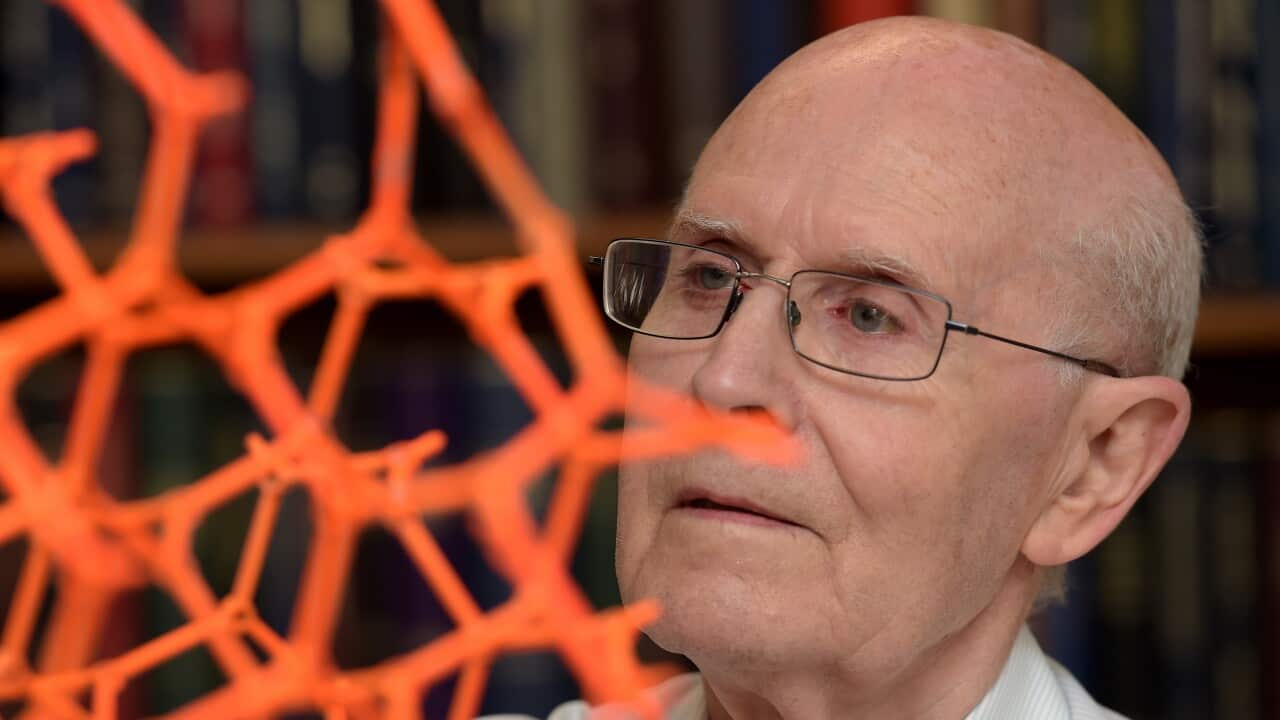A humble Australian professor has won science's most prestigious prize by doing what he loves, after pondering on "big chemistry thoughts" for decades.
The University of Melbourne's Richard Robson has been honoured with a Nobel Prize in chemistry for his work in developing a new form of molecular architecture alongside Japan's Susumu Kitagawa and American-Jordanian Omar Yaghi.
What was the discovery?
The three laureates worked to create molecular constructions with large spaces through which gases and other chemicals can flow and that can be utilised to harvest water from desert air, capture carbon dioxide or store toxic gases.
The prize committee said some of these materials had a remarkably large surface area — a porous material roughly the size of a small sugar cube could contain as much surface area as a large football pitch.
"A small amount of such material can be almost like Hermione's handbag in Harry Potter. It can store huge amounts of gas in a tiny volume," said Olof Ramstrom, member of the Nobel committee for chemistry.
The chemists worked separately but added to each other's breakthroughs, which began in 1989 with Robson.
The 88-year-old produced the first metal-organic frameworks in the early 1990s and continued to explore different forms over the following decades.
He's worked as a lecturer and researcher at the University of Melbourne since 1966.
After the discoveries, chemists have built tens of thousands of different MOFs, some of which "may contribute to solving some of humankind's greatest challenges", the academy said, adding that additional uses included separating toxic PFAS, or "forever chemicals", from water and breaking down traces of pharmaceuticals in the environment.
Robson 'a bit stunned' to get the Nobel prize
University vice-chancellor Emma Johnston congratulated Robson on receiving the highest possible recognition for his achievements.
"This is the kind of blue-sky research that not many people get the opportunity to explore, and even fewer make the kinds of breakthroughs Professor Robson has achieved," Johnston said.
"Australia needs to recognise that this long-term fundamental research is what allows us to then translate that research into products, like the ability to store and transfer hydrogen safely."
Deputy vice-chancellor Mark Cassidy hopes the prize will inspire a wave of research to advance metal-organic frameworks into products vital to Australia's push toward renewable energy solutions.
"Professor Robson is a humble man who has achieved this honour by simply doing what he loves, going into the lab every day, talking with students, thinking big chemistry thoughts for decades and running experiments," Cassidy said.
Robson told The Associated Press he was "very pleased, of course, and a bit stunned as well".
"This is a major thing that happens late in life when I'm not really in a condition to withstand it all," he said.
"But here we are."
For the latest from SBS News, download our app and subscribe to our newsletter.

